By Diane Wong
October 16, 2024
Halfway into the vice presidential debate on October 1st, the conversation turned to immigration, and Springfield, Ohio, once again became the center of national attention. During his turn, Sen. JD Vance repeated false claims about Haitian immigrants in Springfield as “illegal aliens,” prompting the moderator Margaret Brennan to correct him by clarifying that many Haitians have legal status. Vance retorted, “The rules were that you guys weren’t going to fact-check.” This was not the first time false information was shared during a national debate. In fact, CNN counted that Trump delivered more than 30 false claims during the last presidential debate against Harris in September. When the public can’t turn to the media and elected officials for accurate information, it is hardly surprising why trust in democracy is at an all-time low.
When compared to other democracies, the United States consistently ranks behind other countries like Switzerland, Norway, and Korea, in regards to levels of trust in the government, especially for Gen Z voters. This distrust has important implications for the presidential election in November since over 40 million Gen Z voters will be eligible to cast ballots this year, accounting for one-fifth of the electorate.
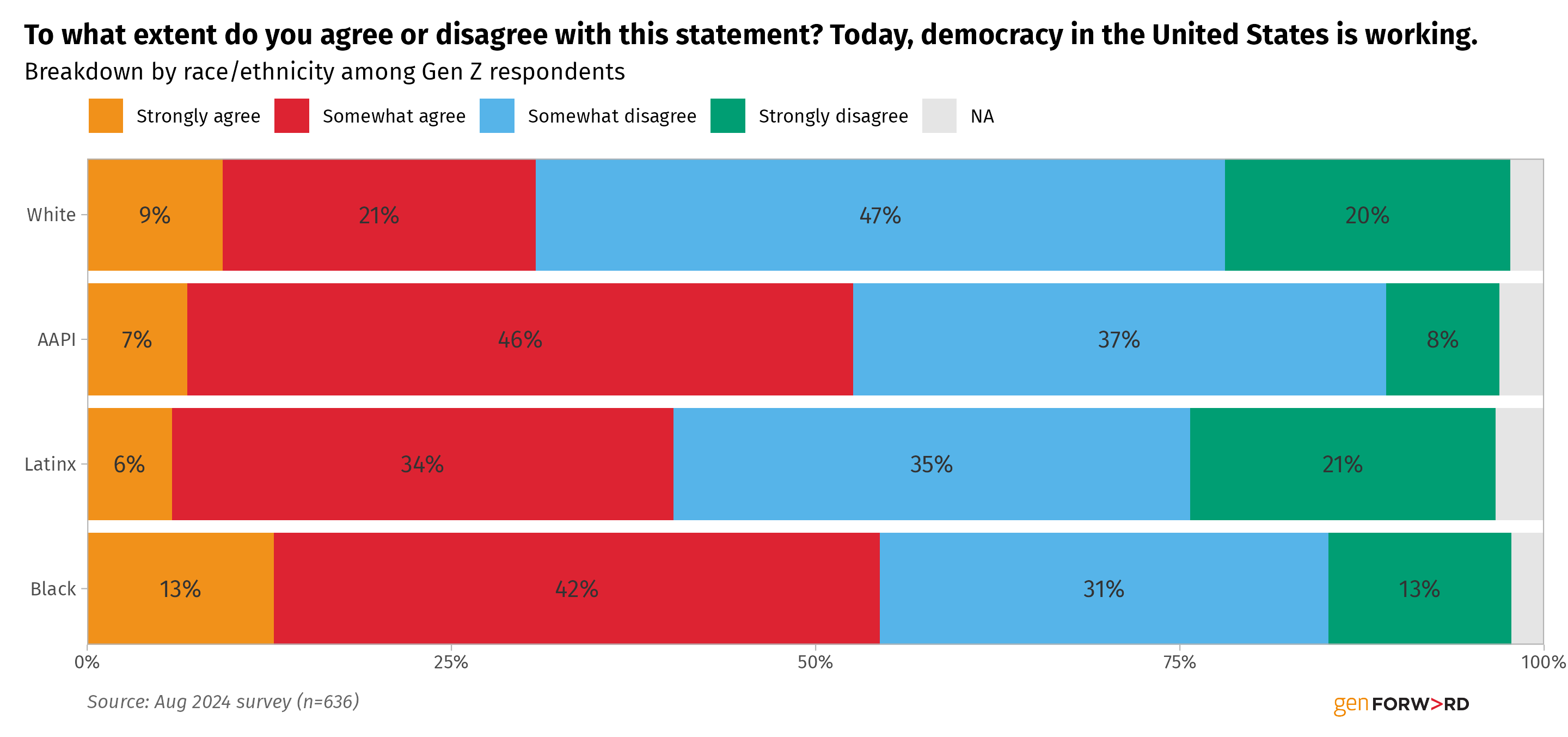
When asked about their perception of the government in our August 2024 survey, 42% of Black, 33% of AAPI, 42% of Latinx, and 40% of White Gen Z voters expressed that they do not trust their local, state, and federal government. Across the board, young women of color were more distrustful of democratic institutions than any other group.
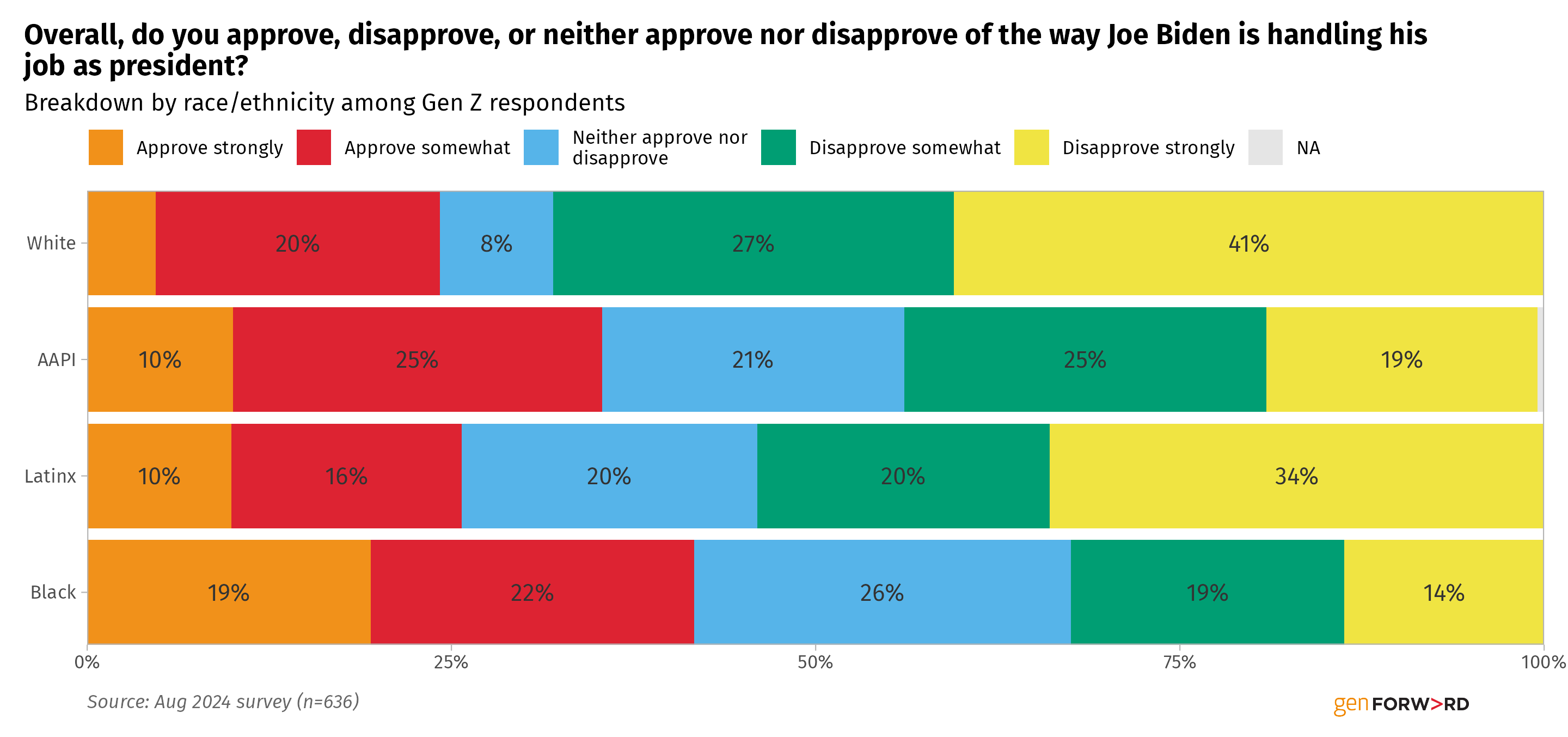
This distrust stretches across all three branches of the federal government. According to the August 2024 Genforward survey, 33% of Black, 44% of Asian, 54% of Latinx, and 68% of White American Gen Z respondents disapprove of the way Biden is handling his job as president.
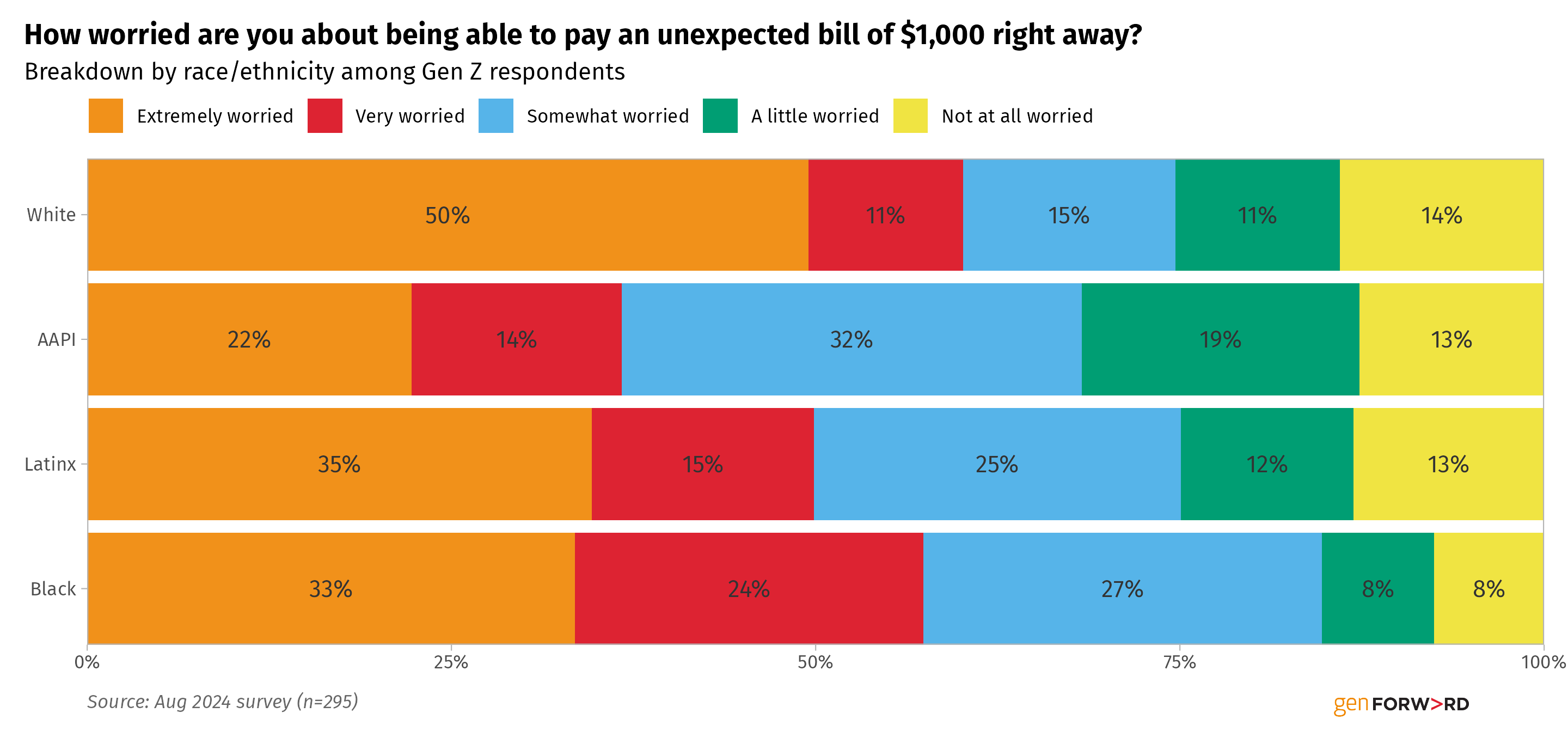
Our data illustrates that Gen Z voters are especially dissatisfied with the nation’s economy; nearly 82% of Black, 58% of AAPI, 79% of Latinx, and 67% of White Gen Z voters indicated that they live in financial precarity with little to no emergency savings. In other words, the majority of Gen Z cannot afford to pay a $1,000 emergency expense from their savings, like an unexpected medical bill or replacing a broken appliance.
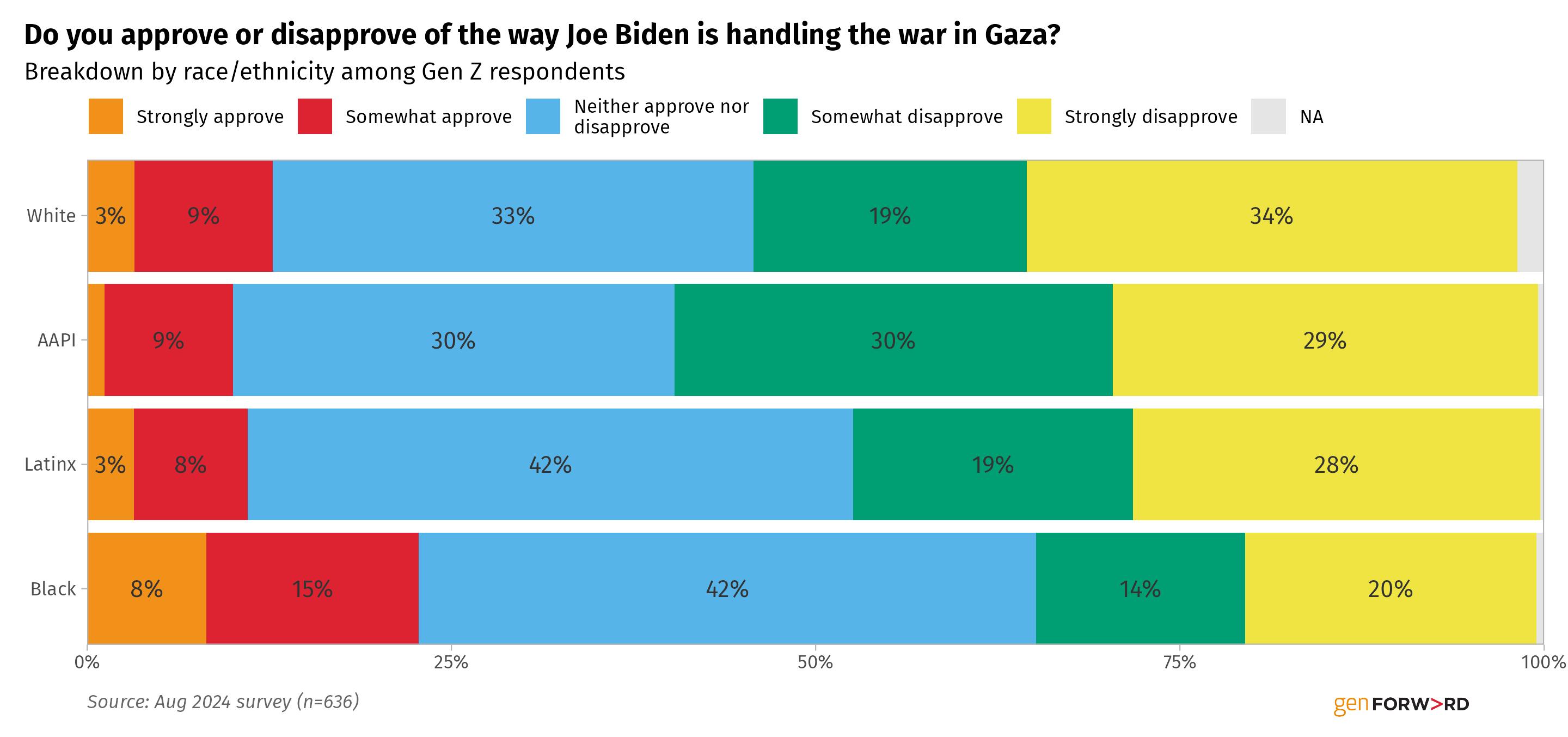
Even though young voters overwhelmingly sided with Biden in 2020, one particular issue that has frustrated Gen Z voters is his stance on the war in Gaza. Currently, 34% of Black, 59% of AAPI, 47% of Latinx, and 53% of White young voters disapprove of the way Biden is handling the war in Gaza.
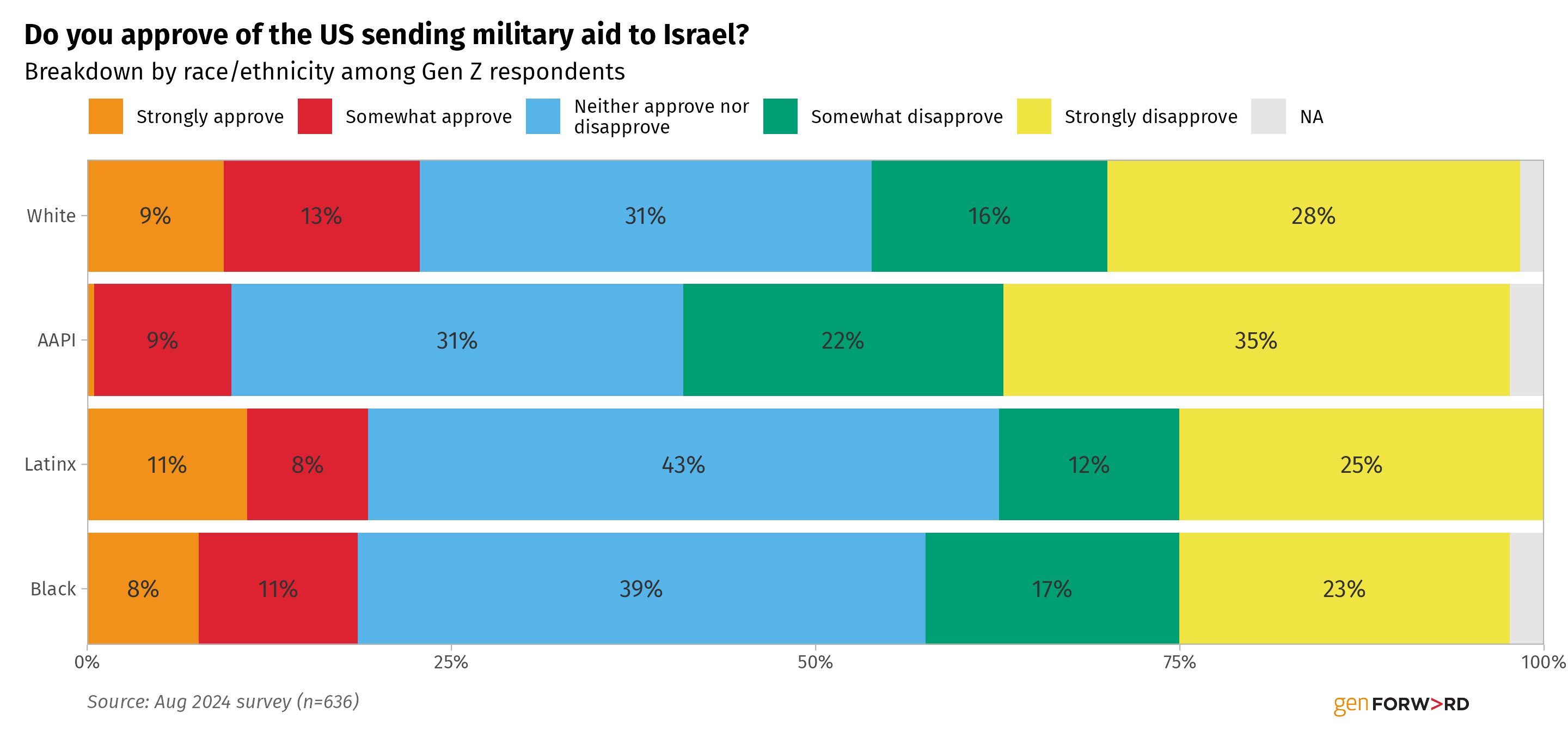
Additionally, over one-third or 40% of Black, 57% of AAPI, 37% of Latinx, and 44% of White Gen Z voters disapprove of the US sending military aid to Israel. The death toll in Gaza has surpassed 42,000 people, and Israel’s war has now expanded across southern and eastern Lebanon.
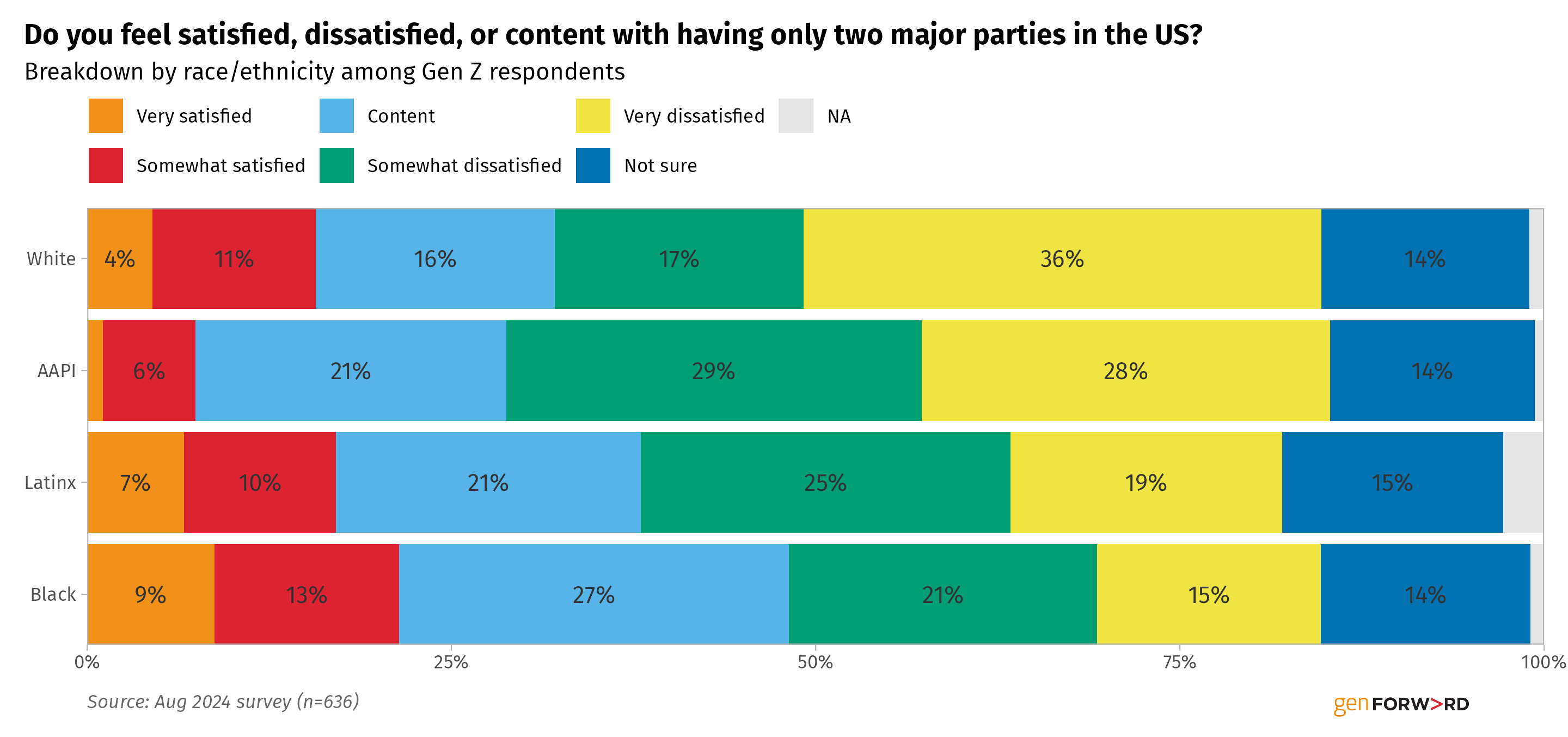
What would it take to restore Gen Z’s trust in governing institutions? For starters, Gen Z voters are looking for deeper structural changes to the political system. Tired of false promises, Gen Z voters want to see a fundamental shift in how democracy works. For instance, 36% of Black, 57% of AAPI, 44% of Latinx, and 53% of White Gen Z voters expressed dissatisfaction with having only two major parties. Whether it is supporting an independent candidate or calling for term limits and ethics reform in Congress, Gen Z voters want concrete actions and progress made around the issues that matter the most to them, like gun violence, climate change, and student debt cancellation. When we asked whether the government should do more to help students pay for college, 64% of Black, 66% of AAPI, 58% of Latinx, and 61% of White Gen Z voters agreed or strongly agreed.
Trust in governing institutions is the bedrock of a healthy democracy. If either party is interested in harnessing the electoral power of Gen Z voters, there needs to be more accountability and responsiveness—not just during the election cycle.
The GenForward Survey is associated with the University of Chicago. The August Survey responses were collected from July 22, 2024, through August 5, 2024, among a nationally representative sample of 3,576 adults 18+ in the United States. The overall margin of error is ±3.06 percentage points at the 95 percent confidence level.
Diane Wong is an Assistant Professor in the Department of Political Science at Rutgers University, Newark. Learn more about Diane & the GenForward researchers here.

